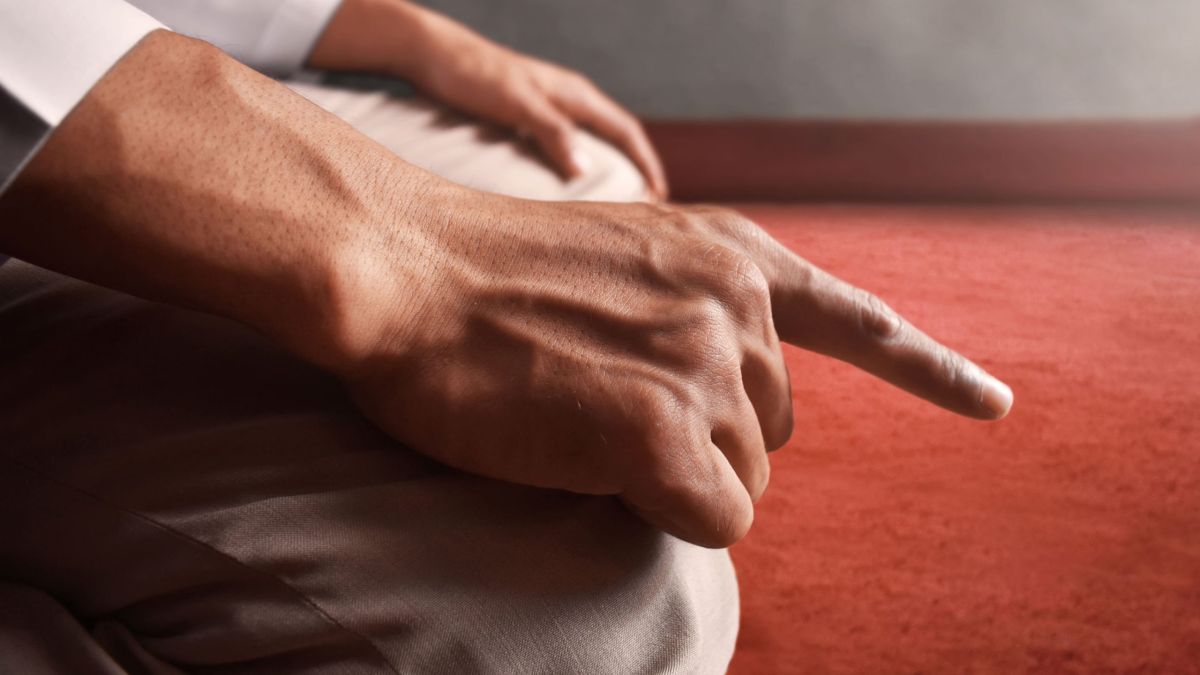Pushing Back the One Who Passes in front of the One Who Is Praying
Imām al-Shawkānī


This was done by Abū Saʿīd to the slave who wished to pass in front of him – he pushed him back by pushing his chest – then when the slave returned he pushed him back with more force as occurs in al-Bukhārī and others.
- From Ibn ʿUmar, that the Prophet (ﷺ) said, “when one of you is praying then do not let anyone pass in front of him, and if he refuses then fight him for indeed he has a companion [i.e. a shayṭān] with him.” Reported by Aḥmad, Muslim and Ibn Mājah.
- From Abū Saʿīd who said: I heard the Messenger of Allāh (ﷺ) saying, “When one of you prays towards something that acts as a sutrah for him from the rest of the people, and someone wishes to pass in from of him [i.e. between him and the sutrah] then push him back, and if he refuses then fight him for he is a shayṭān.” Reported by the Group except for al-Tirmidhī and Ibn Mājah. [Note: A sutrah is a object that is placed in front of the one who is praying such that the people become aware that he is praying and do not pass directly in front of him but rather from beyond the sutrah.] His saying [no.1], “when one of you is praying then do not…” this is a general statement which finds specification in the ḥadīth of Abū Saʿīd. [no. 2], “when one of you prays towards something that acts as a sutrah for him,” so it is not permissible to push back or fight except for the one who has a sutrah. Al-Nawawī said, “they have agreed that all of this [pushing and fighting] is for the one who has not been negligent in his prayer, rather he has been careful and prayed towards a sutrah or has prayed in a place in which he is safe from people passing in front of him.” His saying [no.1], “then do not let anyone pass in front of him.” The literal sense of forbiddance is that it is ḥarām to do so. His saying [no.1], “and if he refuses then fight him.” i.e. He first pushes him back without fighting him thereby starting with the easiest way, then he moves on to employing more force then even more until he reaches the point that he fights him. Qaḍī ʿIyāḍ and al-Qurtubī said, “they have unanimously agreed that this does not require him to fight him with a weapon, this because it contraḍīcts the basic principle of concentrating and busying oneself with the prayer.”
A group of the Shāfiʿī scholars generalised and said that it is upon him to literally fight the one who passes in front of him but Ibn al-ʿArabī declared this far fetched saying, “what is meant by fighting is pushing back [with force].” Al-Bājī was of a strange opinion saying, “it is possible that what is meant by fighting is cursing and rebuke.” Al-Ḥāfiẓ [Ibn Hajr] followed his up by saying that this would require him to speak in the prayer thereby invalidating it which is not true of enacting the easy matter [i.e. pushing back]. Al-Ismāʿīlī reported the ḥadīth with the wording, “and if he refuses then place his hand on his chest and push him back,” this is explicit that the pushing back is to be done with the hand. This was done by Abū Saʿīd to the slave who wished to pass in front of him – he pushed him back by pushing his chest – then when the slave returned he pushed him back with more force as occurs in al-Bukhārī and others.
Al-Bayḥaqī quoted from Al-Shāfiʿī that “the meaning of fighting was to push back with more force than was employed on the first occasion.” Qāḍī ʿIyāḍ said, “If he pushed him back in a permissible manner and caused his death then there is no retribution [qawad] against him by agreement of the scholars but is blood money due upon him or not? There are two opinions of the scholars concerning this both of these being voiced by the Mālikī scholars.”
Qāḍī ʿIyāḍ and Ibn Baṭṭāl report a consensus that it is not permissible to walk from one’s place in order to push back or to perform a great deal of movement and action in pushing back. This is because these types of actions are more detrimental to the prayer then having someone walk in front of you. Al-Nawawī said, “I do not know of any of the legal jurists who were of the opinion that this pushing back was obligatory.” Al-Ḥāfiẓ followed this up by saying that the Zahiris had explicitly stated that it was obligatory. The literal sense of the ḥadīth supports them. His saying [no.2], “for indeed he is a shayṭān.” Al-Ḥāfiẓ said,
“Applying the term shayṭān to the human being who passes in front of the one praying is something permissible for their occurs in the Qurʾān the saying of the Exalted, “the shaytans of the humans and jinn.” The reason for this application is that he has done an action of Shayṭān. It is said that the meaning is that it is Shayṭān who has incited him to pass in front of the one who is praying and not go back. Ibn Baṭṭāl said: the permissibility of applying the term shayṭān to the one who causes fitna in the religion can be derived from this ḥadīth.” Al-Ḥāfiẓ said, “this is built upon the fact that the word shayṭān can be literally applied to humans and figuratively applied to jinns but such a premise requires investigation.”
It is also said that the meaning of Shayṭān is companion as occurs in the first ḥadīth. Ibn Abī Jumrah derived from his saying, “for indeed he is a shayṭān” that the meaning of fighting is to push back gently and not to literally fight, this because combating shayṭān is through seeking refuge with Allāh and erecting a barrier from him by mentioning the Name of Allāh and the likes. He went on to say, “so does the fighting lie in fighting the distraction that the one who is praying faces due to someone passing in front of him or does it lie in his trying to bridle the sin of the one passing (by pushing him back)? The second option is more obvious.”
Al-Ḥāfiẓ said, “others said: rather the first is more obvious because the concentration of the one praying takes precedence over his being concerned with bridling the sin of another. Ibn Abī Shaybah reported from Ibn Masʿūd that someone passing in front of the one praying severs half his prayer. Abū Nuʿaym reported from ʿUmar, ‘that if the people knew how much their prayer was diminished due to someone passing in front of them they would never cease to pray towards something that would act as a sutrah from the rest of the people.’ So these two narrations dictate that the pushing back is linked to the distraction that the one praying faces and is not specified to the one passing. These two narrations even if they end at a Ṣaḥābah they have the ruling of being from the Messenger (ﷺ), because the likes of this is not said from personal opinion.”
Most Popular: Last 30 Days

















